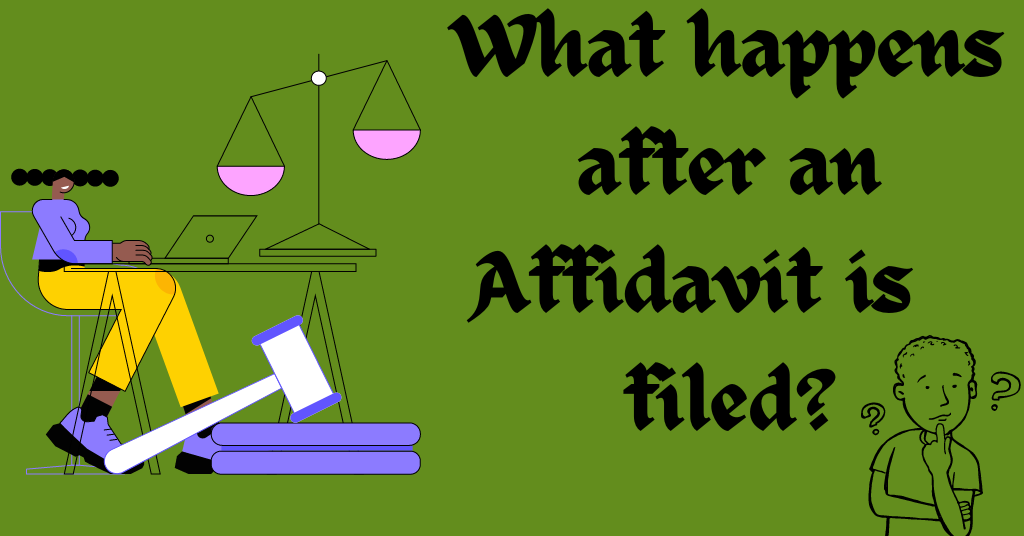After an affidavit is filed, the court will schedule a hearing to determine whether or not the affidavit is sufficient evidence to support a criminal charge. If the affidavit is found to be sufficient, the court will order a search of the defendant’s property. If there is evidence found during the search that connects the defendant to the crime, the defendant will be arrested and charged with a crime.
What happens after an affidavit is filed?
An affidavit is a sworn declaration made under penalty of perjury. Once it’s filed, the parties to the case will have 30 days to file written objections. If no objections are filed, then the court may order that the document be administratively closed without any further proceedings being taken.
Once the lawsuit has been filed, the judge will take a hearing on it. If everything goes according to plan, the defendant’s attorney will file an “affidavit” saying that the defendant will not appear in court and that he will pay the plaintiff’s attorney a reasonable fee. If the defendant appears, he will be served with notice to defend or answer the suit.
In the case of default, the court will grant judgment for the plaintiff and issue a writ of execution. This is when the plaintiff’s lawyer can go into the court and request that the court issue a writ of execution, which is the court order telling the sheriff to seize and sell property owned by the defendant. The plaintiff’s lawyer can sell the defendant’s assets to pay the judgment.
If the defendant makes the payment, the plaintiff’s lawyer can cancel the writ and the case is over.
Uses of Affidavits:
- Confirmation on receiving the legal documents
- Property disputes
- Debt clearing related issues
- Divorce court
- Residencial verification
- To notify a party of a proceeding of changes
- Verification of Name changes
- Confirming the identity of a victim of identity theft. etc.
If you’re arrested, you might want to make an affidavit. An affidavit is a written statement you give to the court. You swear on a Bible, for example, that the facts in your affidavit are true and that you understand the consequences of making a false statement. The truth of your statements can save your life, prevent a conviction or protect your reputation.
For example, if someone accuses you of a crime, you may want to write an affidavit. Your affidavit might say that you were never at the scene of a crime and therefore couldn’t have committed it. You may also wish to write an affidavit stating that you never took or destroyed evidence of a crime. And you might also want to write an affidavit saying that you were coerced into making a statement against yourself.
You must always consult an attorney before writing your affidavit.
In conclusion,
In this blog, we discussed the procedure after filing an affidavit. If you’re planning to file an affidavit in a case, make sure that you know all the steps carefully.
As for what happens in any case after the affidavit is filed? It depends on your performance during court proceedings. That will be decided by the judge who hears your case.
Author Profile

Latest entries
 QuariesDecember 15, 2022Affidavit of non prosecution Texas
QuariesDecember 15, 2022Affidavit of non prosecution Texas QuariesDecember 4, 2022Self proving affidavit Florida
QuariesDecember 4, 2022Self proving affidavit Florida QuariesDecember 4, 2022Why Affidavit is Not Evidence?
QuariesDecember 4, 2022Why Affidavit is Not Evidence? QuariesDecember 4, 2022Heirship affidavit Alabama
QuariesDecember 4, 2022Heirship affidavit Alabama


